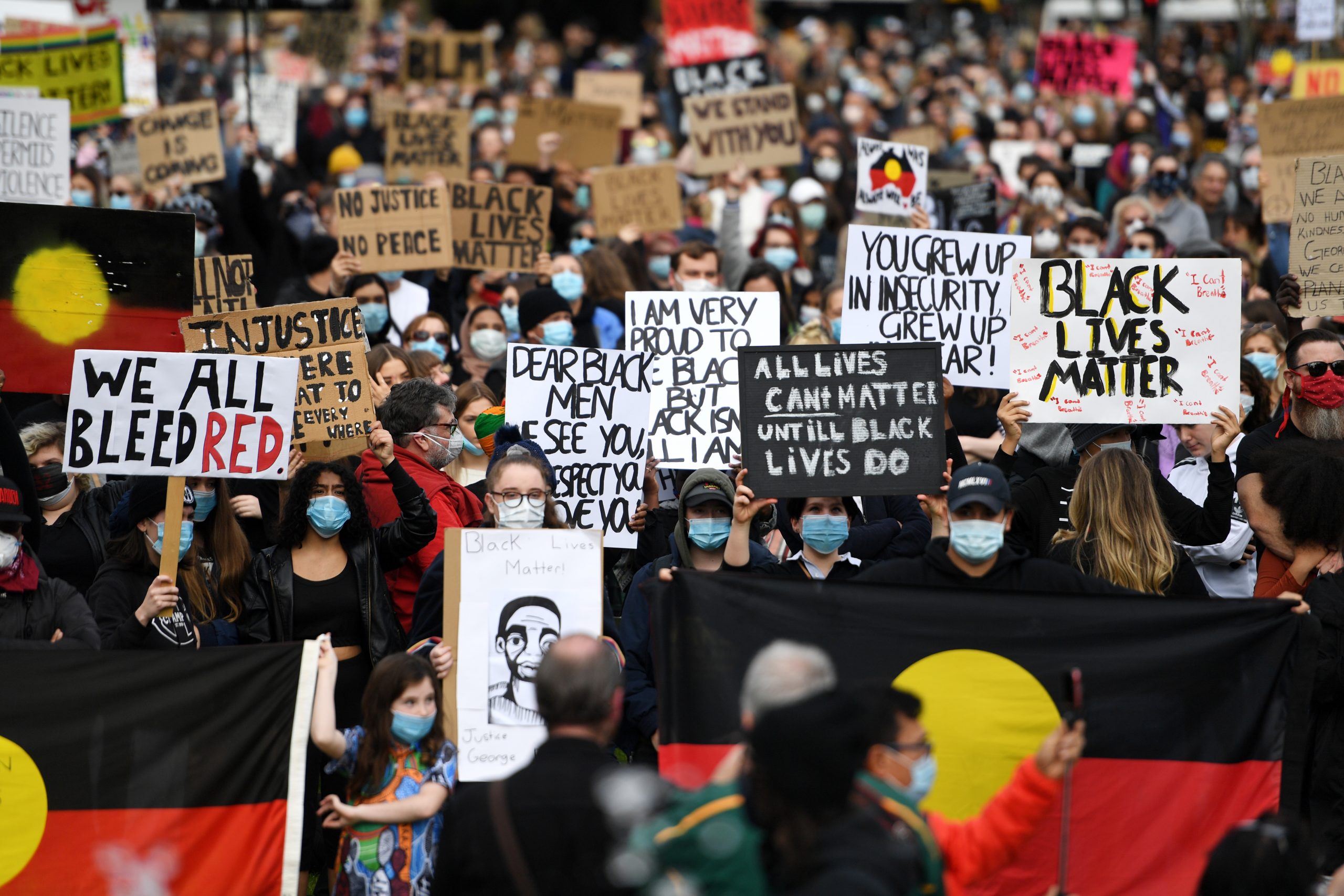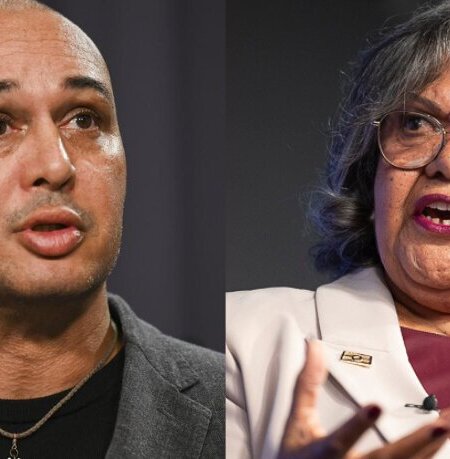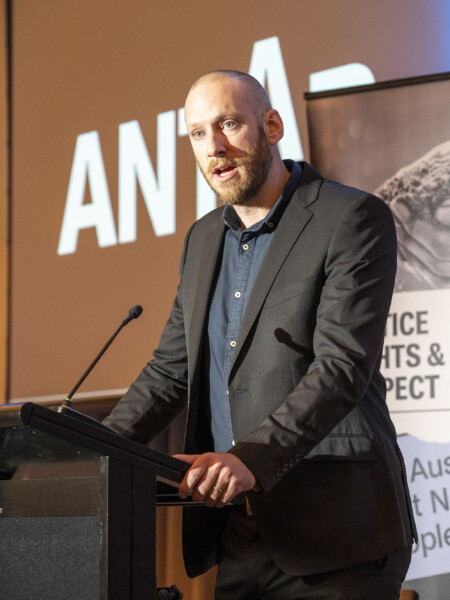The last election cycle has seen some commendable positive steps, including:
- a new building for Winnunga Nimmityjah Aboriginal Health and Community Services
- the opening of each session of the ACT’s Legislative Assembly in the Ngunnawal language
- multi-party support and funding for the Yarrabi Bamirr justice reinvestment program is also a positive step, with such programs continuing to demonstrate their worth in changing lives and reducing imprisonment
- the recent commitment to increasing the age of criminal responsibility from 10 to 14 years, which will keep children out of prison.
Going forward, there is need for urgent action to address the intergenerational challenges faced by many Aboriginal and Torres Strait Islander people in the ACT. The forthcoming election is an opportunity for the next ACT Government to undertake a ‘whole of life’ reset of commitments in three broad areas:
- The justice system and imprisonment
- Health and community
- Community leadership and treaty
The ANTaR ACT Committee has developed these priorities in consultation with the local Aboriginal and Torres Strait Islander community. In recent months, we have also met with politicians to listen to their thoughts.
In the lead-up to the ACT election, please consider your local candidates’ commitment to action to improve the lives of Aboriginal and Torres Strait Islander people in the ACT.
The justice system and imprisonment
As the Black Lives Matter protests have reminded us, Aboriginal and Torres Strait Islander people continue to face disproportionate rates of imprisonment, involvement with the justice system and recidivism compared to the rest of the population. The ACT has the highest rate of Aboriginal and Torres Strait Islander people re-entering the justice system (prison or community corrections) in Australia within 2 years of leaving prison.
ACT government priorities for the next cycle should include:
- Implementing fully changes recommended in the wake of the tragic death of Steven Freeman in the Alexander Maconochie Centre on 27 May, 2016, by the Moss Inquiry and Coroner’s Report.
- Implementing fully changes recommended by the coroner following the tragic death of Jonathon Hogan in Junee prison on 3 February 2018.
- Long term funding and considerable expansion of the Justice Reinvestment Program, Yarrabi Bamirr. Supporting families at risk makes sense for the whole community. To this end, the recent announcement of further funding is welcome, however, we believe it does not go far enough: the community organisations which are implementing the program need guaranteed funding for a minimum of three years and could easily extend the program further.
- Ongoing support of, commitment to and extension of the Throughcare Program at the Alexander Maconochie Centre, which supports prisoners pre and post release – including specialised support for Aboriginal and Torres Strait Islander people being released from prison. Adequate housing and employment are critical factors in changing lives and keeping people from re-entering the justice system.
- Continued support for the Circle Sentencing Courts in the ACT: Galumbany and Warrumbul Children’s Court, and restorative justice.
Health and our community
Aboriginal and Torres Strait Islander people in the ACT face poorer health outcomes and much lower life expectancy than the general population. Children have a much higher chance of being part of the child protection system, including being removed from their families and living in out-of-home-care.
Priorities for this cycle should include:
- Action on out-of-home care: the final Our Booris Our Way report was released in December 2019 following an extensive and inclusive multi-year consultation with multiple stakeholders including people directly affected by out-of-home-care. The ACT Government response was released on 13 August. There are some early signs that action on the report’s 2018 interim recommendations is bringing some results, with the rates of Aboriginal and Torres Strait Islander children entering care reducing from 30 to 20 per cent as a proportion of all children. As the response acknowledges: ‘this level of over representation is still unacceptable’. ANTaR ACT supports actions to date. We seek further targeted implementation in the next three years, and demonstrable change in the system and in the experience of Aboriginal and Torres Strait Islander children and families.
- Committed implementation of the recommendations of the Report on Child and Youth Protection Services tabled in the ACT Legislative Assembly in July 2020.
- Greater action on the Ngunnawal Bush Healing Farm, NBHF, so that it can provide residential services and meet local needs for services and healing. NBHF has been under-utilised to date, in part due to zoning problems that prevent it providing clinical services. While it is now offering some day and online programs, the NBHF should be community controlled, well resourced, and able to offer comprehensive residential and wrap around programs that best meet ACT community needs. It should be overseen by the United Ngunnawal Elders Council, who had the vision for a special place of healing to be created in the ACT, and should remain in partnership with the Aboriginal and Torres Strait Islander Healing Foundation’s healing framework.
- Closing the Gap Agreement: The ACT Government is a signatory to the new National Closing the Gap Agreement signed in July 2020 by all jurisdictions and the Coalition of Peak Aboriginal organisations involved in service delivery. To succeed in its goals, governments need to implement important reforms of their processes and provide adequate funding. As the past 15 years have shown, business as usual and funding as usual will be insufficient.
- Housing and homelessness: there is an urgent need for increased social housing and support for affordable housing that meets the needs of Aboriginal and Torres Strait Islander families. We need more support to prevent homelessness, to assist homeless people back into housing, and to help them remain in stable housing. ANTaR ACT supports the ACT Council of Social Services’ (ACTCOSS’) call for the next government to develop an Indigenous Housing Strategy for the ACT, including a pathway to a community controlled Aboriginal housing organisation. We also believe it is important that the ACT Government creates pathways to recruit more Aboriginal and Torres Strait Islander people into housing and homelessness services.
Community leadership and treaty
ANTaR ACT recognises the vitally important – and leading – roles of the United Ngunnawal Elders Council and the Aboriginal and Torres Strait Islander Elected Body (ATSIEB) in relation to the Canberra Aboriginal and Torres Strait Islander community’s engagement with Government and promoting equitable outcomes for community members.
The Aboriginal and Torres Strait Islander Agreement 2019–28 and annual reporting provide an ongoing record of what the whole community is seeking and a way of tracking progress.
Priorities for this cycle:
ANTaR ACT strongly supports ongoing funding support to maintain and build existing and new Indigenous-led and controlled organisations, with Winnunga Nimmityjah, Gugan Gulwan, Tjillari Justice and Yeddung Mura all showing strong positive outcomes for the local community.
There is more to do.
We want to see a timeline for the transition of the re-opened Boomanulla Oval to community control, which was identified by ATSIEB as a priority area under the 2019-28 Aboriginal and Torres Strait Islander Agreement. Similarly, the Yarramundi Cultural Centre at Yarramundi Reach should be transferred to Aboriginal community control.
ANTaR ACT also calls on the ACT Government to honour its 2001 commitment towards joint management of Namadgi National Park, beyond providing funding for the Murrumbung Rangers, and to actively explore the return of land to traditional custodians.
Some Aboriginal cultural heritage in the ACT has been damaged or threatened in recent years. Cultural mapping of sites within the ACT is urgently required, as is an increase in the number of Indigenous rangers and career pathways for rangers to take on leadership roles within ACT Environment and Heritage.
It is important that, in partnership with traditional custodians, an incoming government gives priority to strengthening protection of cultural heritage in the ACT, including negotiating this with the Commonwealth Government in relation to the land for which it retains responsibility.
Recognising the centrality of language to culture, we want to see funding and ongoing support for the Winanggaay Ngunnawal Language Group , a dedicated Language Centre, and for Canberra to take up the United Ngunnawal Elders Council call for renaming of places.
The ACT Government needs to explore the creation of a Ngunnawal Cultural Centre. A Ngunnawal Cultural Centre would create a dedicated space for the display, celebration and interpretation of Ngunnawal culture. The governance and operational model should be based on a ‘First Nation’s First’ approach enshrined into every aspect of the project. A project such as this would lead to improved wellbeing outcomes for Ngunnawal People, create numerous construction jobs, support ongoing jobs and attract numerous visitors.
Finally, we urge the incoming government to be ready to commence negotiations about agreements including a Treaty or Treaties in the ACT when the traditional custodians of the ACT and surrounding region wish to commence such a conversation.
ANTaR ACT’s annual David Hunter Memorial Lecture, this year hosted on Zoom on 27 August, featured Tony McAvoy SC, speaking about Treaty from the perspective of legal justice.
Since European settlement of Australia, no Australian government has made a treaty agreement with Aboriginal and Torres Strait Islander peoples. The consequences of colonisation have been oppressively debilitating to the culture, health and opportunities of Aboriginal and Torres Strait Islander peoples. Aboriginal and Torres Strait Islander peoples have not had the same outcomes in education, health, housing, and cultural support as non-Indigenous Australia. Despite these effects, Aboriginal and Torres Strait Islander people maintain sovereignty over the land.
[By ANTaR ACT, Authorised by Janet Hunt.]




